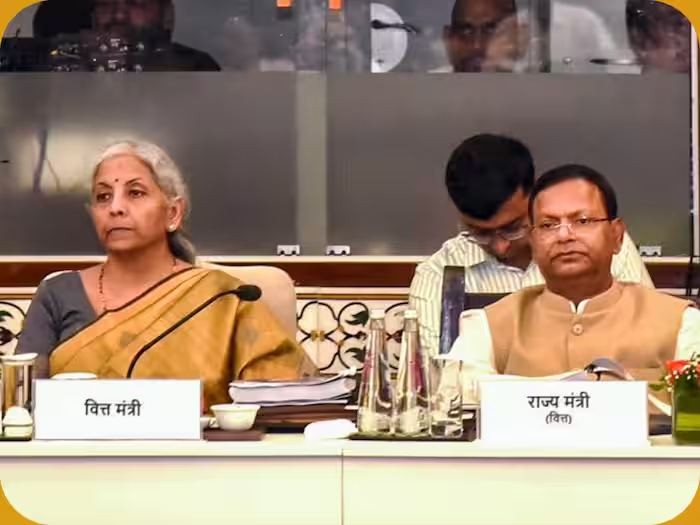GST Council will decide on reduction in tax rates on life, health insurance premium in November
Currently, 18% GST is levied on health and life insurance premium. The Finance Minister has said that a decision will be taken on this in November.
The GST Council on Monday reached a broad consensus on reducing the tax rate on premiums of health and life insurance policies. A final decision on this will be taken in the November meeting.
Sitharaman told reporters about the decisions taken in the 54th meeting of the GST Council that it has been decided to form two ministerial groups. One of these will consider the Goods and Services Tax (GST) on the premium of life and health insurance policies while the other will look into the issues related to compensation cess.
The Group of Ministers will suggest the way forward for GST compensation cess. It is levied on luxury items and goods that are harmful to the society.
The government had borrowed Rs 2.69 lakh crore in the financial years 2020-21 and 2021-22 to meet the revenue deficit of the states. The GST Council had decided to extend the levy of compensation cess to repay loans and interest till March 2026.
Sitharaman said that the loan and interest are expected to be paid by December 2025 or January 2026. The Group of Ministers (GoM) will decide on the future of the cess. It will also consider how to divide it between the Center and the states and the necessary changes in the law for this as it can no longer be called a compensation cess.
The GST Council has decided to reduce the tax rate on cancer drugs – trastuzumab deruxtecan, osimertinib and durvalumab – from 12 per cent to 5 per cent, and on certain categories of salts from 18 per cent to 12 per cent.
However, the GST rate on car seats has been increased from 18 per cent to 28 per cent. This rate has been decided to bring it at par with motorcycle seats, which already attract 28 per cent GST.
The Council also decided that helicopter services will attract 5 per cent GST on seat share basis for passengers and 18 per cent GST on helicopter charters.
Also, flight training courses conducted by DGCA (Directorate General of Civil Aviation) approved Flying Training Organisations (FTOs) are exempted from GST.
Sitharaman said that the council discussed the issue of reducing taxes on medical and health insurance. It was felt in the meeting that more discussion is needed regarding group insurance policies of resident welfare associations and companies as well as premiums paid by senior citizens and life insurance.
He said, “The Council felt that the matter related to insurance has many dimensions. In such a situation, it is appropriate that a group of ministers consider the matter and submit its report on it by the end of October so that a decision can be taken in the GST Council meeting in November.”
The members of the GoM formed on GST on health insurance will include ministers from Bihar, Uttar Pradesh, West Bengal, Karnataka, Kerala, Rajasthan, Andhra Pradesh, Meghalaya, Goa, Telangana, Tamil Nadu, Punjab and Gujarat.
Currently, 18 per cent GST is levied on health and life insurance premiums.
Referring to the issue of GST exemption on funds received by institutions for research and development, the Finance Minister said that Prime Minister Narendra Modi has asked him to give tax exemption to such funds.
Sitharaman said, “There are cases of research-related funds being given to institutions. Notice has been given to seven such institutions… There are issues related to interpretation in these. The field officer will definitely want to ensure that he does his job properly…”
He said seven such notices sent will be evaluated by the tax officials and the remaining cases of the past period will be regularized.
Sitharaman said that a committee of officials headed by the Additional Secretary (Revenue) will look into the formula for sharing Integrated GST (IGST) between the Centre and the states. Currently, the IGST account is shared equally between the Centre and the states. It will look into ways to get the money back from the states.
Revenue Secretary Sanjay Malhotra said that currently there is an imbalance of Rs 14,000 crore in the IGST account.
After the successful implementation of e-invoicing in the B2B (between companies) sector, the GST Council also recommended a pilot project for e-invoicing in B2C (between companies and customers).
This will also provide an opportunity to retail customers to verify the reporting of invoices in GST returns.
Read in Hindi : health insurance
